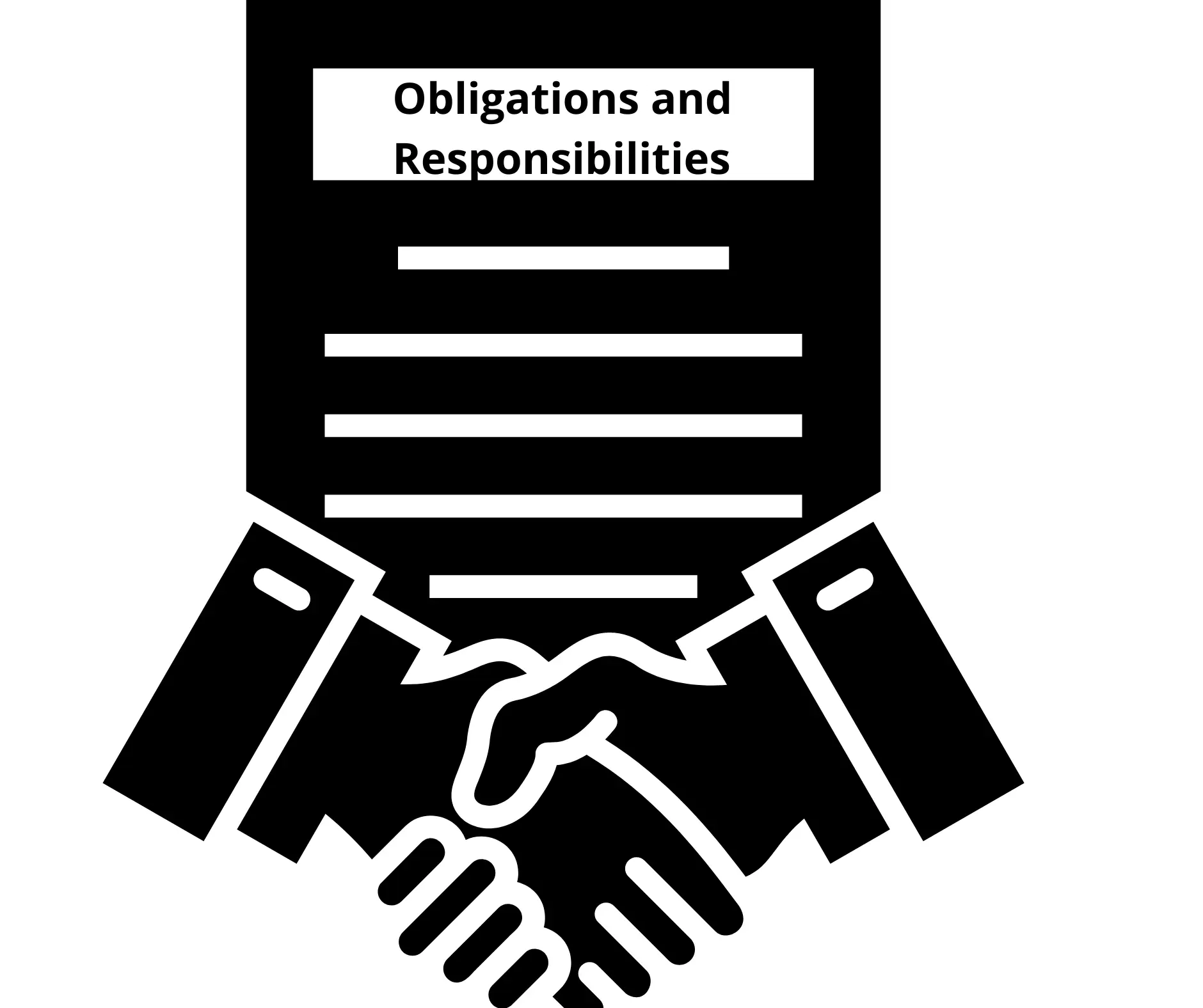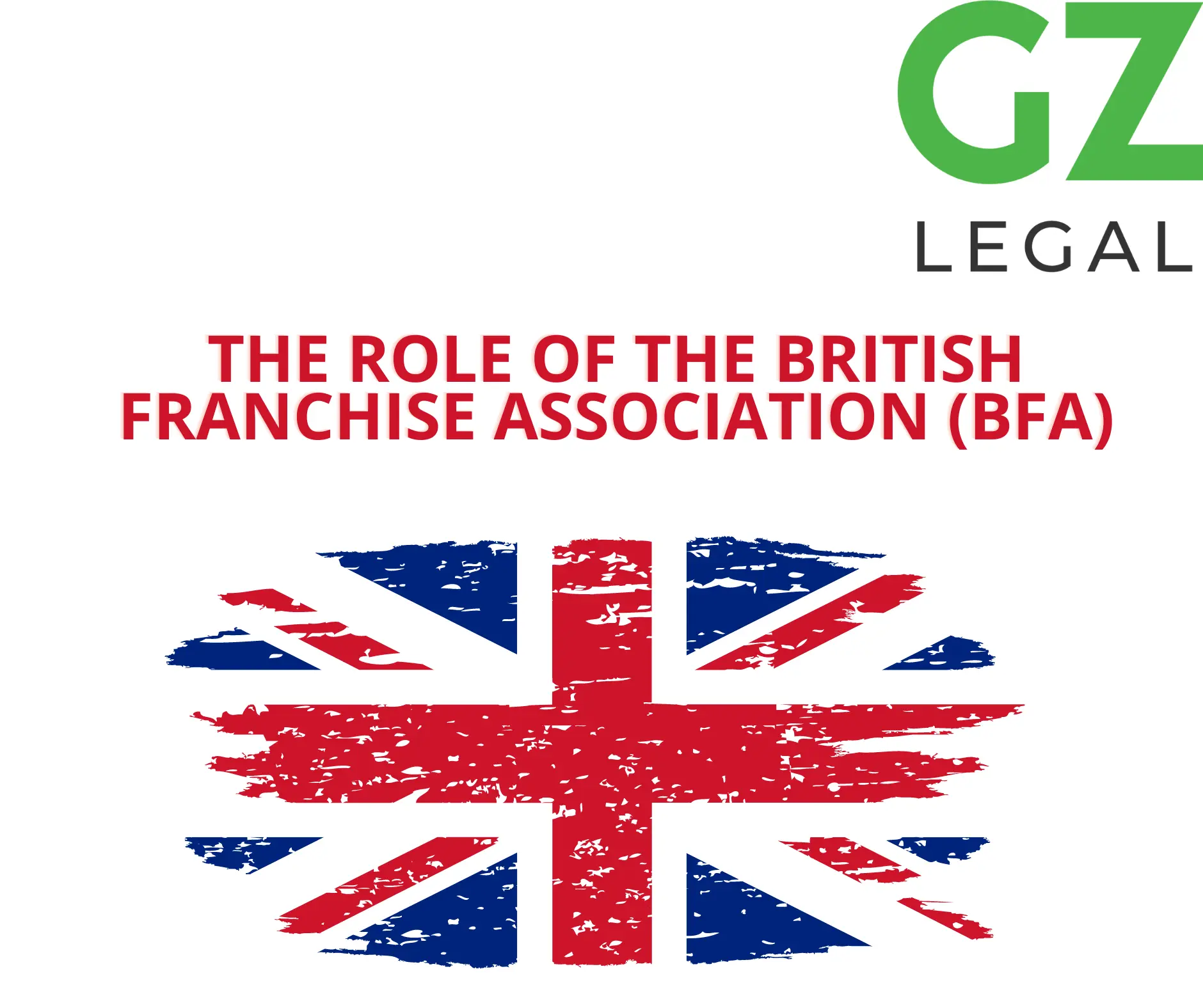Malcolm ZoppiSun Oct 15 2023
What is a Franchise Agreement? A Comprehensive Overview for Entrepreneurs
A franchise agreement governs the franchising relationship between a franchisor and a franchisee.
A franchise agreement is a crucial legal document that establishes the terms and conditions between a franchisor and a franchisee. It is used standard form the backbone of the franchising relationship, delineating the rights a franchisee has and the roles and responsibilities of both parties involved. The specifics of a franchise agreement can vary, depending on factors such as the franchise network and the lawyer drafting the document.
Understandably, the essence of a franchise agreement lies in its content, which covers several critical aspects. These include the term of the franchise agreement sets first and renewal provisions; resale provisions; rights granted to the franchisor; and legally binding obligations for both parties. Overall, a franchise agreement aims to provide a clear and comprehensive framework for the successful operation of a franchise business, ensuring that the franchisor’s trademarks, systems, products, services, and proprietary information are protected.
Key Takeaways
- A franchise agreement governs the franchising relationship between a franchisor and a franchisee, outlining their rights and responsibilities.
- The document covers crucial aspects such as the terms, renewal provisions, resale provisions, and obligations of both parties.
- Franchise agreements help protect the franchisor’s trademarks, systems, products, services, and proprietary information while providing a clear framework for operating the business.
Understanding Franchise Agreements
A franchise agreement is a legally binding document that outlines the terms and conditions of the franchisor-franchisee relationship. It governs the rights and obligations of both parties and sets out the expectations for each party’s conduct. As a franchisee, it’s essential to thoroughly understand the franchise agreement before signing it.
When entering a franchise agreement, you must be aware that it is a complex and important document that requires careful consideration. It is highly recommended to seek legal advice from a qualified lawyer who has experience in franchise law. A top franchise lawyer will help you understand the various clauses and provisions, as well as ensure that your rights and interests are protected.
One essential aspect of a franchise agreement is that it may be non-negotiable. This means that the franchisor may not be willing to make any changes or amendments to the agreement. You should approach the franchise agreement with the understanding that it is the final offer. However, it’s still crucial to seek legal advice to clarify any ambiguities or concerns you may have.
Some key aspects of franchise agreements include:
- The duration of the agreement and renewal terms
- Territory and location restrictions
- Fees and royalties payable to the franchisor
- Intellectual property rights, including trademarks and branding
- Training and support provided by the franchisor
- Performance standards and reporting requirements
- Termination clauses and potential penalties
It’s important to remember that franchise agreements are legally binding documents. Therefore, you must fully understand the agreement and your responsibilities as a franchisee to sign it. Don’t hesitate to ask questions before signing, and request clarifications whenever necessary.
In conclusion, entering a franchise agreement is a significant decision that requires due diligence and the assistance of a qualified lawyer. By carefully reviewing the terms and conditions of most franchise agreements and seeking legal advice, you can safeguard your investment and ensure a successful franchising experience.
Key Elements of a Franchise Agreement
Franchisor and Franchisee
A crucial element in a franchise agreement is the identification and roles of the franchisor and franchisee. The franchisor, typically the owner of the business model, grants the franchisee permission to use their trademarks, branding and proven business model and systems. The franchisee is an independent operator who agrees to follow the rules and policies set by the franchisor, helping to maintain consistency throughout the franchise network.
Duration of the Agreement
The term or duration of entire agreement: the franchise agreement outlines how long the franchisee has the right to operate the franchise. Generally, franchise agreements have a fixed duration, such as five or ten years. At the end of the term, the franchisee may have the option to pay to renew the agreement, subject to meeting specific requirements set out by the franchisor.
Franchise Fee and Other Expenses
A franchise agreement should clearly describe the financial obligations imposed on the franchisee. This typically includes the initial franchise fee, which grants the franchisee the exclusive right to use the franchisor’s brand and systems. Other expenses may involve ongoing royalty fees or marketing contributions, payable to pay the franchisor throughout the term of the agreement. Some franchise agreements may also specify minimum performance targets to ensure franchisees operate profitably.
Franchise Territory
Your franchise territory refers to the geographic area in which you are allowed to operate, market, and sell the franchisor’s products or services. A well-defined territory prevents other potential franchisees’ from encroaching on your market and ensures each operator has a fair opportunity to grow their business. The franchise agreement should provide clear details about the territory size, scope, and any restrictions placed on the franchisee concerning expansion or relocation.
Trademark and Brand Usage
The usage of the franchisor’s trademarks, logos, and other branding elements is a vital component of the franchise agreement. The franchisor typically grants the franchisee permission to use these assets in advertising, marketing and promotional materials, and signage – strictly adhering to the franchisor’s guidelines and requirements. The franchise agreement works and should also specify the protocol for addressing possible trademark infringements or brand violation disputes.
Training and Support Services
To maintain consistency and quality across the franchise network, the franchise agreement should outline the training and support services provided by the franchisor. This may include initial training programs for new franchisees, ongoing operational support, assistance with marketing and advertising efforts, and access to the franchisor’s resources and network. The franchisee is expected to participate in these training and support programs to ensure the successful and smooth running of of their business.
Obligations and Responsibilities

Franchisor’s Obligations
As a franchisor, your primary obligation is to provide the franchisee with a comprehensive system that defines your business model and sets out the guidelines for its operation. This includes providing training and support in areas such as operational procedures, marketing, and management.
You are also responsible for maintaining and protecting the intellectual property (IP) rights associated with your brand and operating system, including trademarks, trade names, and proprietary methods. This ensures that your franchisees can effectively use your brand and business systems without violating any IP rights.
Additionally, you must provide ongoing support to your franchisees in areas such as advertising and marketing. This may involve creating marketing materials, offering advice on promoting the business locally, and implementing regional or national campaigns that benefit the entire franchise network.
Lastly, monitoring and ensuring compliance with the franchise agreement, industry regulations, and applicable laws are also crucial aspects of your obligations. This can include regular audits and inspections of franchisees’ operations to guarantee that brand standards are maintained.
Franchisee’s Obligations
As a franchisee, your key obligation is to adhere to the systems and processes provided by the franchisor. This may include using approved suppliers, following established operational procedures, and implementing the required marketing strategies.
You are also responsible for managing your franchise business effectively, which entails hiring and training employees, maintaining financial records, and handling day-to-day operations in accordance with the franchisor’s guidelines.
Compliance with advertising and marketing initiatives set by the franchisor is another essential obligation. This often requires you to contribute financially to shared marketing initiatives and costs, and costs such as national advertising campaigns and promotional materials.
It is crucial for you to protect the franchisor’s intellectual property rights. This means using the franchised business’s trade names, trademarks, and proprietary methods in a manner that aligns with the franchisor’s guidelines, and avoiding any actions that might dilute or damage the brand’s reputation.
Finally, you must be prepared to maintain high standards of business operation, continuously working towards achieving the goals set out by the franchisor franchisee relationship and agreement. This includes complying with industry regulations, applicable laws, and any additional requirements set by the franchisor in maintaining brand integrity and reputation.
Terms of Termination and Renewal

In a franchise agreement, termination and renewal terms play a vital role in defining the prospects of the partnership between the franchisor and franchisee. Understanding these terms will help you make informed decisions about entering a franchise business or dealing with experienced franchise solicitor and its ongoing operations.
Franchise agreements typically last for a fixed term, often five years or more. However, the initial fee agreement might be renewed if both parties are in agreement. It is crucial to meet certain conditions to qualify for franchise contract renewal, as renewal rights may not be granted automatically. Breach of contract by the franchisee, such as non-compliance with business operations, brand standards or financial requirements, may result in termination of the agreement.
In case a termination is warranted, the franchisor usually needs to provide a reason and a plan for winding up the franchised business, prioritising open communication through written notice. On the other hand, if you have a fixed-term agreement and wish to terminate it without renewing, you may simply wait for the term to conclude and decline to renew your agreement.
As a franchisee, it is important to familiarise yourself with the legal terms and conditions surrounding termination and renewal of the franchise agreement. Here are a few key points to remember:
- Be aware of the conditions required for renewal, such as meeting performance standards or financial obligations.
- Ensure that you comply with the franchise agreement’s terms and conditions to avoid any breach that may lead to termination.
- Keep communication lines open with the franchisor and discuss any concerns or intentions regarding termination or renewal.
In conclusion, understanding and adhering to the terms of termination and renewal in a franchise agreement is essential for a healthy and successful franchising partnership. By knowing your rights and obligations, you can better navigate the franchising world and make informed decisions when dealing with termination or renewal situations.
Legal and Ethical Considerations

When entering into a franchise agreement, it is essential for both the franchisor and franchisee to be aware of legal and ethical considerations. This ensures the franchise operates smoothly while adhering to necessary regulations and upholding its reputation.
Intellectual Property: Protecting intellectual property is crucial in a franchise agreement, as it defines the rights granted to a franchisee to use the franchisor’s trademarks, systems, products, services, and other proprietary information. It is essential for both parties to properly understand these ownership rights and their limitations to avoid potential infringement issues.
Conduct: Both the franchisor and franchisee should maintain a professional relationship, complying with the agreed terms and conditions outlined in the franchise agreement. It is vital to observe a code of conduct that fosters a positive working environment, promoting the franchise’s success.
Disputes: Despite best intentions, disputes may arise between franchisors and individual franchisees sometimes. It is most important document all for the franchise agreement to include provisions for dispute resolution, such as mediation or arbitration, ensuring a fair process for resolving conflicts. Should a resolution not be achievable through these means, legal action may be necessary.
Legal Requirements: Franchisors and prospective franchisees must be aware of and adhere to the relevant legal requirements in their specific jurisdiction. These requirements may include licensing, taxation, employment laws, and data protection, among others. Ensuring compliance with the law safeguards both parties from potential legal disputes and liabilities.
Code of Ethics: Upholding a code of ethics is essential in maintaining a a franchise system’s reputation and promoting its growth. Abiding by ethical standards, observing best practice guidelines, and providing training and support for franchisees contributes to creating a successful franchise network. A commitment to ethical conduct demonstrates professionalism and encourages trust among stakeholders, ultimately benefiting the franchise system as a whole.
By addressing these legal and ethical considerations in your franchise agreement and throughout the franchise relationship, you can foster a positive, legally compliant, and successful partnership.
The Role of the British Franchise Association

The British Franchise Association (BFA) plays a pivotal role in the franchise industry across the United Kingdom. As a franchise professional, it is essential for you to understand the key functions this organisation carries out.
Firstly, the BFA acts as the governing body for franchising in the UK, setting strict ethical standards for its members to follow. By adhering to these guidelines, both franchisors and franchisees can ensure they are engaging in a fair and mutually beneficial business relationship.
In addition to establishing ethical standards, the BFA offers support and education for franchisors and franchisees at all stages of their development. Whether you are a newcomer or a seasoned franchisor, the BFA provides resources and guidance to help you grow and succeed in your franchising journey.
Another vital aspect of the BFA’s role is the enforcement and monitoring of its members’ compliance with the established guidelines. By consistently assessing the practices of franchisors and franchisees, the BFA ensures that the integrity of the franchise industry is maintained, and those who breach the agreed-upon standards are held accountable.
Lastly, the British Franchise Association provides comprehensive information on franchise agreements. As a key aspect of the franchising process, the Franchise Agreement governs the legal relationship between the franchisor and franchisee. The BFA offers resources to help you understand the terms and conditions outlined in the agreement, such as the term and renewal provisions, payment obligations, training demands, and termination provisions.
In summary, the BFA is crucial to the successful operation of the franchise industry in the UK. By promoting fair business practices and providing franchisors with valuable support and education, the organisation helps to create a thriving franchising ecosystem where businesses can grow and prosper.
Steps Towards a Successful Franchise Agreement
When you’re entering into a franchise agreement, it is crucial to understand the key components involved. A confident and knowledgeable approach will ensure a smooth and successful business relationship. Here are the essential steps to take:
- Research and due diligence: Before signing a franchise agreement, it is essential to conduct thorough research on the franchisor. Investigate their track record, financial stability, and reputation in the industry. Franchises with a proven record of success are more likely to provide a solid foundation for your business.
- Understand the terms and conditions of the agreement: The franchise agreement is a legally binding document outlining the rights and obligations of both parties (the franchisor and franchisee). Ensure you understand the specifics of the arrangement, including fees, obligations, and ongoing support from the franchisor. It is essential to clarify any uncertainties before signing.
- Legal advice: Seeking legal advice from a solicitor experienced in franchise law is crucial. They will help you interpret the franchise agreement, identify any potential issues, and ensure your rights and interests are protected.
- Define your territory: A critical aspect of a successful franchise business is the designated territory. You should clearly understand the geographical boundaries of your territory and any limitations on offering products or services within that area.
- Training and ongoing support: Be aware of the training and support provided by the franchisor. This assistance is vital in maintaining a successful franchise relationship. It may involve initial training, ongoing support, marketing materials, and access to proprietary systems and processes.
- Communication: Establish open communication channels with the franchisor. Regular dialogue and transparent sharing of information build trust and contribute to the success of the franchise relationship. Both parties should be open to providing feedback and working towards the mutual benefit of the business.
By following these steps, you will put yourself in a strong position to establish a successful franchise relationship. Ensuring you understand the franchise agreement thoroughly and staying engaged throughout the process will lead to a stronger foundation for your business.
Frequently Asked Questions
What are the key elements of a franchise agreement?
In a franchise agreement, you’ll come across several important elements. These commonly include:
- The rights granted to you as a franchisee;
- The obligations of both the franchisee and franchisor;
- The duration of the agreement and any renewal terms;
- The initial fees, ongoing fees and payment structures;
- Requirements relating to equipment, supplies, and inventory;
- Training and support provided by the franchisor;
- Territorial boundaries and any exclusivity clauses;
- Intellectual property usage;
- Termination conditions and processes;
- Post-termination obligations.
What are common conditions in franchise agreements?
Franchise agreements often contain common conditions regarding the following aspects:
- Adherence to franchisor’s established systems and practices;
- Quality control and maintaining standard operating procedures;
- Restrictions on the sale of competing products or services;
- Compliance with specific marketing guidelines and participation in marketing campaigns;
- Mandatory attendance at franchisor training programmes or meetings;
- Regular reporting and provision of operational data to the franchisor;
- Maintenance of confidentiality and protection of trade secrets.
How do franchise agreements differ by type?
Franchise agreements can vary significantly depending on the industry, business model, and specific relationship between competing business and the franchisor and franchisee. These differences in franchise agreement may include variations in the fee structure, level of franchisor support, territorial exclusivity, or the terms and conditions related to the sale and transfer of the franchise unit.
Find out more!
If you want to read more in this subject area, you might find some of our other blogs interesting:
- Step-by-Step Guide on How to Transfer Shares to a Holding Company
- Breach of Settlement Agreement: Consequences and Remedies Explained
- Who Gets the Money When a Company is Sold?
- What is a Counter Offer in Contract Law? Explained Simply and Clearly
- Understanding the Costs: How Much Do Injunctions Cost in the UK?
Disclaimer: This document has been prepared for informational purposes only and should not be construed as legal or financial advice. You should always seek independent professional advice and not rely on the content of this document as every individual circumstance is unique. Additionally, this document is not intended to prejudge the legal, financial or tax position of any person.